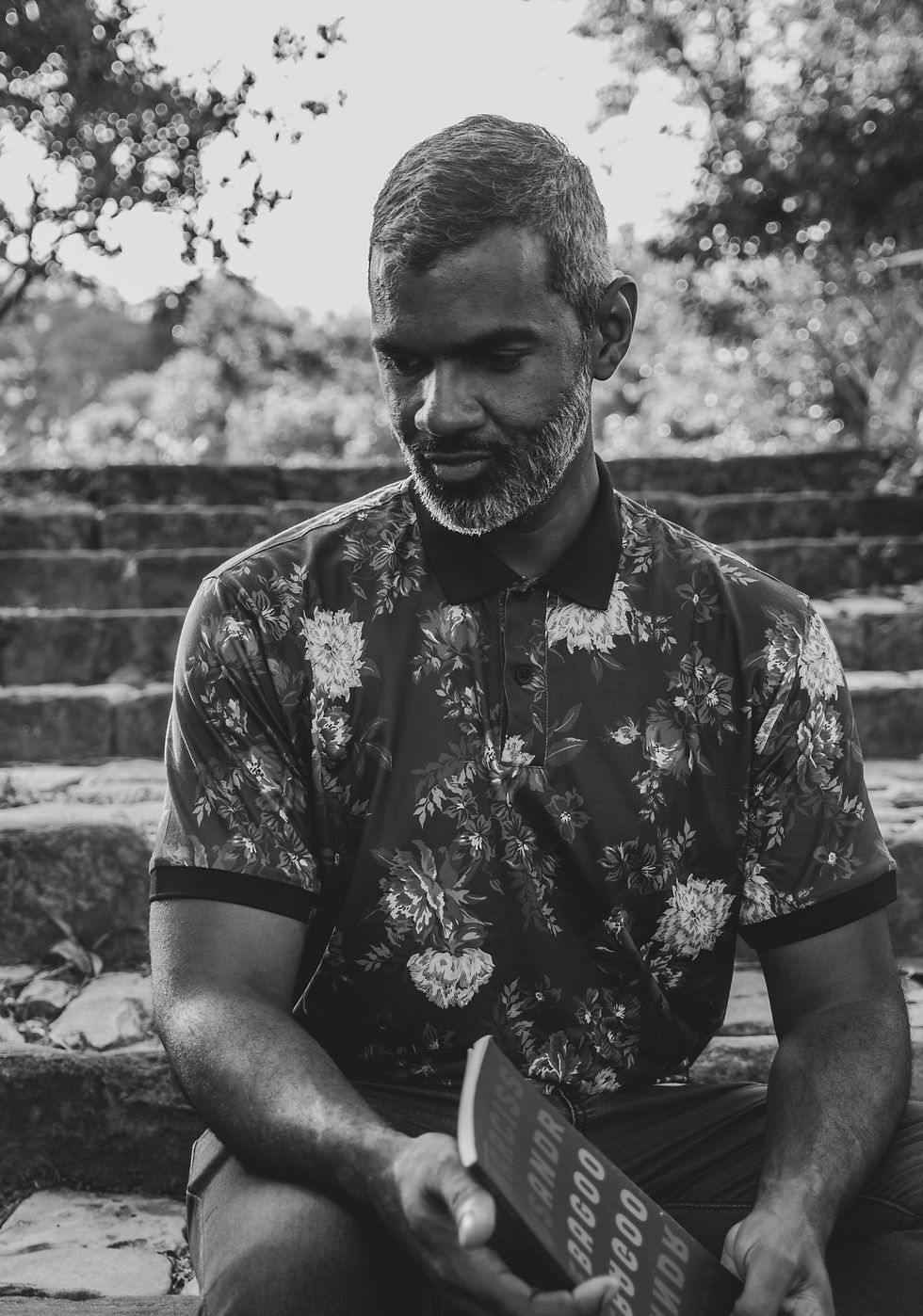Interview with Andre Bagoo
- Aaron Kent

- Nov 10, 2023
- 4 min read
Updated: Jan 14, 2025
Author of Narcissus

When did you write the book, and what was the inspiration behind it?
It started with Ted Hughes. There was a stage in my life when every morning before work I would listen to the audiobook of his rendition of Ovid’s Metamorphosis. There was something about the mannered, Ted Hughesian way in which he read the Narcissus tale that perked my attention. It struck me that Narcissus was very queer, or at least queer-adjacent, and Echo seemed very much like a beard. When we say someone is narcissistic, we usually mean this in a pejorative sense. But the queer experience is about coming to terms with self, learning to love self, and unlearning the painful programming of a heteronormative world. I remember having all these thoughts and thinking “maybe one day that might be a nice essay to write” and then putting the thought down and going to work. Years later, I kept getting asked to write poems – for commissions, for art shows, for festival appearances, for magazines. I had not planned to write a fourth poetry collection; I was hoping to take a break to do other things. Poetry didn’t want to take a break from me. After a while, I could look back and see that I had amassed another book.
When I noticed the Narcissus theme among all this new writing, I set to work to order the collection around it. I discovered there was in fact something of a tradition of the myth being queered, as seen within Victorian literature. I was emboldened to take this tradition up and make it my own. I wanted mirrors: ekphrastic poems reflecting works of art; poems comprised of other poems: centos, erasures, found poems; paradelles; echo poems; prose poems that settled like water in a pond; concrete poems that looked on the page like what they harboured; visual poems, too, that contained my visage; circle poems that trapped meaning like Narcissus was trapped; Oulipian forms; rhyme; repetition. No speculars–there are many other ways to be mirror-mad. I put it all in the book and hoped for the best.
How would you summarise this book in 100 words or fewer?
Narcissus is a book concerned with the blossoming of one’s true nature amid a perilous world; a reflection of our times. It is so good.
How would you characterise the style of your book? For example, would you see it as lyrical, prose or experimental? (to name but a few!) Can you provide some commentary around why you feel it falls into these categories?
I think all my books have each embodied all these styles. Each is a unique ecology meant both to cohere and to be disassembled.
During the writing of this book, did you learn anything new?
I leaned into poetic forms that erased my sense of agency as a writer. Paradoxically, in so doing, that same agency was reasserted. It was a thrilling lesson.
Can you list some of your main influences? Feel free to include writers, literary movements, but also any influences outside of the literary sphere that have had an impact?
I love great poets like Essex Hemphill and John Ashberry. Meanwhile, there are a lot of Oulipian forms in the second half of the book, many of which I deployed because they had in-built structures of repetition which fit perfectly with a mirroring agenda.
Please can you list some stylistic or technical elements contained within your work, and why you feel that these are important?
At various points, the book echoes itself with erasures of previous poems appearing on the overleaf.
For someone who enjoys your work, which other authors do you think would also be appealing to them?
The great thing about writing a book called Narcissus is that I can answer this question by simply advising readers to read everything else that I have ever written!
Is there a personal story or inspiration relating to this book? If you feel comfortable, please feel free to share!
All the stories are in the poems.
Is there a particular audience you had in mind when writing this book? How did this impact the writing process?
I am more concerned with “the reader” than with a specific audience, be it geographic, demographic, or stylistic. At the same time, the greatest joy this book has brought me has come from the reaction of live audiences wherever they may be, at home in Trinidad or abroad. Ultimately, though, the only audience I write for is myself.
What are you working on at the moment?
What am I NOT working on? Follow me online to find out: @AndreBagoo
Andre Bagoo is a Trinidadian poet, writer, and essayist. His most recent books include the poetry collection Narcissus, the short story collection The Dreaming and the award-winning essay collection on art and politics The Undiscovered Country, hailed by Ilya Kaminsky as a work “as brilliant as it is startling”.






